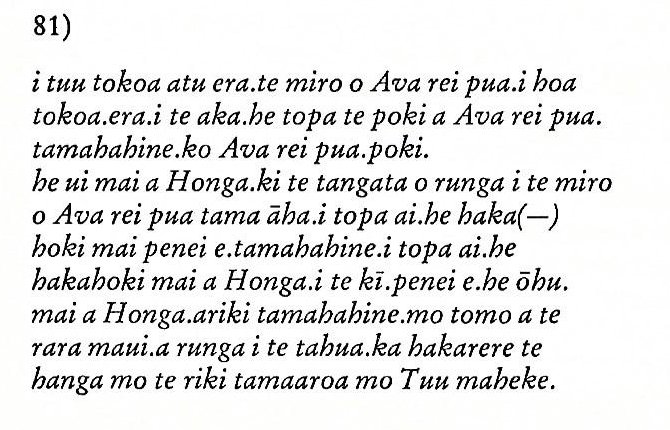
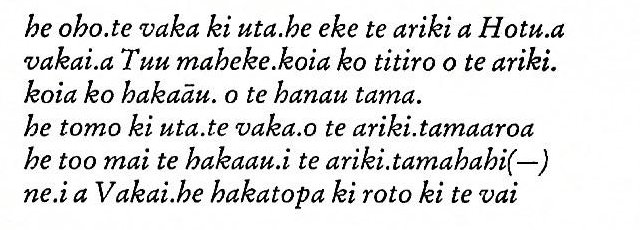
|
E:80 |
| koia ko
hakamanamana mai i te hakanononga |
He worked
mana in the fishing grounds. |
|
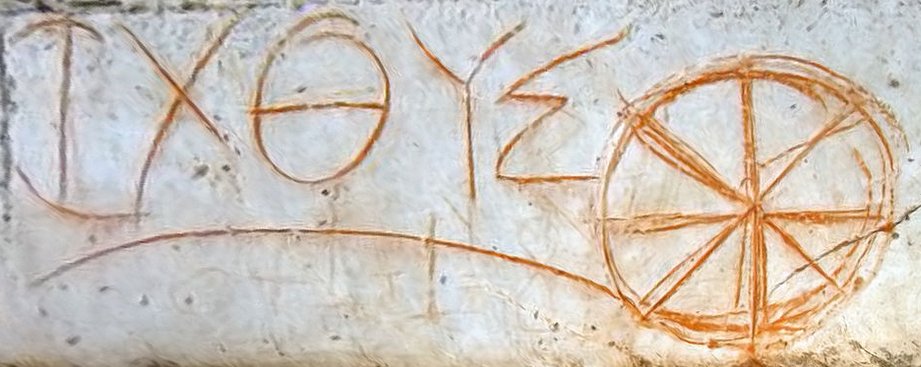 |
| (three
[empty?] lines crossed out) |
[Similar to
the 3 days between Polaris (*26) and Hamal (*30).] |
|
...
For three days all household fires remained extinct
as a preparation for the solemn renewal of the fire,
which took place on the fifth or sixth day after the
winter solstice ...
... Väinämöinen set about building a boat, but when
it came to the prow and the stern, he found he
needed three words in his rune that he did not know,
however he sought for them ... |
| i tuu
mai era te miro.o Hotu.ki
taharoa.he topa te haa(-) |
When Hotu's canoe had reached Taharoa, the vaginal
fluid (of Hotu's pregnant wife) appeared.
They sailed toward Hanga Hoonu, where the mucus (kovare
seems to refer to the amniotic sac in this case)
appeared
They sailed on and came to Rangi Meamea, where the
amniotic fluid ran out and the contractions began. |
|
haa roroa.he oho.mai ki
hanga hoonu.he |
|
topa te kovare.he
oho.mai he tuu ki rangi |
|
meamea.he pakakina te ranu.he au te tua |
|
toto.o te poki.he
hoa te aka i mua i te hanga. |
|
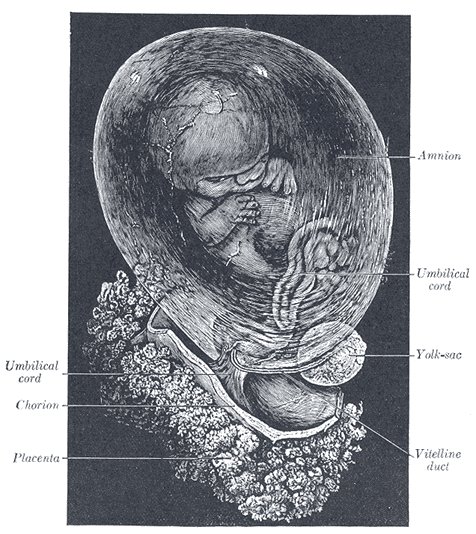
Hoa. 1. Master,
owner; tagata hoa papaku, owner or relative of a dead; hoa
manu, 'bird master', that is, he who received
the first egg at the annual festivals in Orongo;
he to'o mai e te hoa manu i te mamari ki toona
rima, he ma'u, he hoko, the 'bird master'
receives the egg in his hand and carries it,
dancing. 2.Friend, companion: e ga hoa ê!
3. To cast away, to throw away, to
abandon, perhaps also to expel. 4. To
confess a sin; he hoa i te ta'u: term used of
a category of rongorongo boards (see ta'u).
Vanaga. 1. Friend; repa hoa, friend
(male), comrade, companion, fellow; to confide;
repa hoa titika, faithful friend; garu hoa,
friend (either sex); uha hoa, friend
(female); hoa kona, native T. 2. To abandon,
to debark, to cast, to launch, to anchor, to let go,
to give up, to reject, to repudiate, to suppress, to
cut off, to jerk out, to proscribe, to reprove;
hoahoa, to upset, to destroy. Churchill.
Aka. 1. Anchor: he-hoa te aka, to
drop anchor. 2. Root of certain plants (banana tree,
taro, sugar-cane). 3. To be paralyzed by surprise.
Vanaga. 1. Root; aka totoro, to take root. P
Pau., Mq.: aka, root. Ta.: aa, id. 2.
(āka)
anchor. 3. Causative (haka).
Churchill. |
|
i
hanga rau.he tuu tokoa atu te miro.o |
They
anchored [he hoa te aka] the canoe in front
of the bay, in Hanga Rau. |
|
Ava rei pua.he hoa
tokoa i te aka. |
The canoe
of Ava Rei Pua also arrived and anchored [he hoa
tokoa i te aka]. |
|
i hoa era te aka.o te
miro o hotu.he topa te |
After Hotu's canoe had anchored [i hoa era te
aka.o te miro o Hotu], the child of Vakai and
Hotu appeared [he topa te poki.ki haho]. It
was Tuu Maheke, son of Hotu, a boy [tamaaroa]. |
|
poki.ki haho.a Vakai.a
Hotu.ko Tuu |
|
maheke.e a
Hotu.tamaaroa. |
|
Topa. 1.
To bend down, to drop to the ground; to fall on a
certain date. 2. To stop doing something, to drop;
ina ekó topa taau aga, do not stop, keep
doing your work. 3. To remain, to be left over, to
be unfinished; he topa te kai, the food is
not finished, there is some left. 4. To come to
one's memory; i te aamu he topa te vânaga tûai,
in the legends old words come to memory. 5. To
remember, to reflect (with mana'u as
subject); e-topa rivariva tokorua mana'u ki te
me'e nei, let the two of you think carefully
about this thing. Vanaga. 1. Wine; topa tahaga,
id. 2. To fall in drops, to descend, to go down, to
abdicate; topa iho, to fall; hakatopa,
to knock down, to cause to fall; hakatopa ki raro,
to knock down, to subjugate. 3. Childbirth,
abortion; topa te poki, to lie in. 4. A
feast, to feast. 5. To arrive, to result; topa
rae, newcome; topa iho, to come
unexpectedly; topa ke, to deviate; topa no
mai, topa hakanaa, topa tahaga,
mau topa pu, unexpected; topa okotahi,
solitary; hakatotopa, to excite, to foment.
6. Bad, low, cheap, failure; igoa topa,
nickname; ariga topa, sinister, sly,
ill-tempered, to hang the head; hakatopa, to
disparage; hakatotopa, irresolute. 7. (Of
upward movement) topa ki raro, to scale, to
surpass; hakatopa ki te ao, to confer a
dignity; hakatopa ki te kahu, to spread a
sail; hakatotopa, to make a genealogy.
Churchill.
Haho. Outside. Vanaga. Hahoa (ha
causative, hoa) to cut, to wound, to hurt. PS
Mgv.: tahoa, to make papyrus by beating. Sa.:
foa, to chip, to break. To.: foa, to
crack, to make an opening. Fu.: foa, to dig,
the rent in a mat. Underlying the Nuclear Polynesian
significations the primal sense seems to be that of
a hole. The Rapanui, a causative, is a clear
derivative in the cutting sense; wound and hurt are
secondary withing this language. The Mangarevan
composite means 'to beat until holes appear', which
is a distinctive character of the beaten bast of the
paper mulberry in the condition in which it is ready
for employment in making tapa. Churchill. |
|
E:81 |
| i tuu
tokoa atu era.te miro o Ava rei pua.i hoa |
After the canoe of Ava Rei Pua had also arrived and
anchored, the child of Ava Rei Pua was born [he
topa te poki a Ava rei pua.].
It was a girl named Ava Rei Pua Poki. |
|
tokoa era.i te
aka.he topa te poki a Ava rei pua. |
|
tamahahine.ko Ava rei pua.poki. |
| he ui
mai a Honga.ki te tangata o runga i te miro |
Honga asked [he ui mai a Honga] the people on
board the canoe of Ava Rei Pua, 'What kind of child
was born?' [tama
āha.i topa ai.]
They replied [he hakahoki mai], 'A girl was
born'. [penei e.tamahahine.i topa ai.] |
| o Ava
rei pua tama āha.i topa ai.he haka(-) |
| hoki mai
penei e.tamahahine.i topa ai.he |
| hakahoki
mai a Honga.i te kī.penei e.he ōhu. |
This is how Honga replied to the news [he
hakahoki mai a Honga.i te kī.penei e.]
- he shouted in a loud voice [he
ōhu mai a
Honga.],
'Let the queen land in the left side [a te rara
maúi] in the direction of Te Tahua! Leave the
bay to the royal son [ka hakarere te hanga mo te
riki tamaaroa], to Tuu Maheke!' |
| mai a
Honga.ariki tamahahine.mo tomo a te |
| rara
maui.i runga i te tahua.ka hakarere te |
| hanga mo
te riki tamaaroa mo Tuu maheke. |
| he
oho.te vaka ki uta.he eke te ariki a Hotu.a |
The canoe sailed toward the beach [he
oho.te vaka ki uta.] and King Hotu,
Vakai, and Tuu Maheke went on land [he
eke]. The
assistant of the king [ko titiro o te ariki]
acted as midwife (?) for the pregnant woman (hanau
tama is, in this case, more likely to mean
mother of the child). |
| vakai.a
Tuu maheke.koia ko titiro o te ariki. |
| koia ko
hakaāu. o te hanau tama. |
|
Vi'e hakaa'u, midwife. |
| he tomo
ki uta.te vaka.o te ariki.tamaaroa |
The canoe of the royal boy landed, and the assistant
who acted as a midwife (?) took care of Queen Vakai.
The child came down [he
hakatopa] into the freshwater ... |
| he too
mai te hakaau.i te ariki.tamahahi(-) |
| ne.i a
Vakai.he hakatopa ki roto i te vai |
|
...
There is a couple residing
in one place named Kui and Fakataka.
After the couple stay together for a while
Fakataka is pregnant. So they go away because
they wish to go to another place - they go. The
canoe goes and goes, the wind roars, the sea churns,
the canoe sinks. Kui expires while
Fakataka swims.
Fakataka swims and
swims, reaching another land. She goes there and
stays on the upraised reef in the freshwater pools
on the reef, and there delivers her child, a boy
child. She gives him the name Taetagaloa.
When the baby is born a golden plover flies over and
alights upon the reef. (Kua fanau lā te
pepe kae lele mai te tuli oi tū mai i te papa).
And so the woman thus names
various parts of the child beginning with the name
'the plover' (tuli): neck (tuliulu),
elbow (tulilima), knee (tulivae).
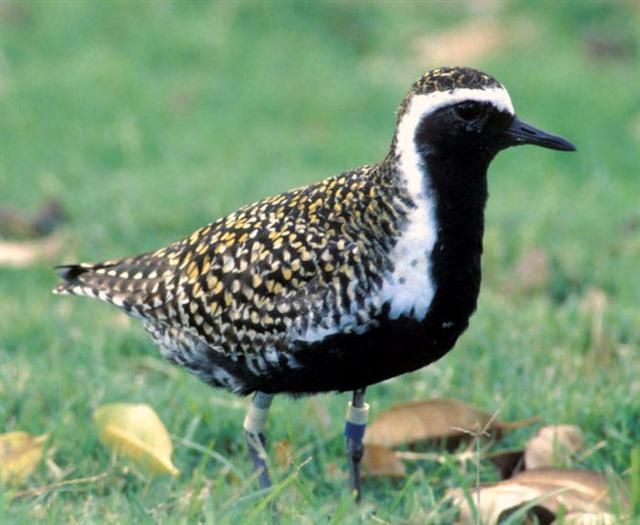 |
|